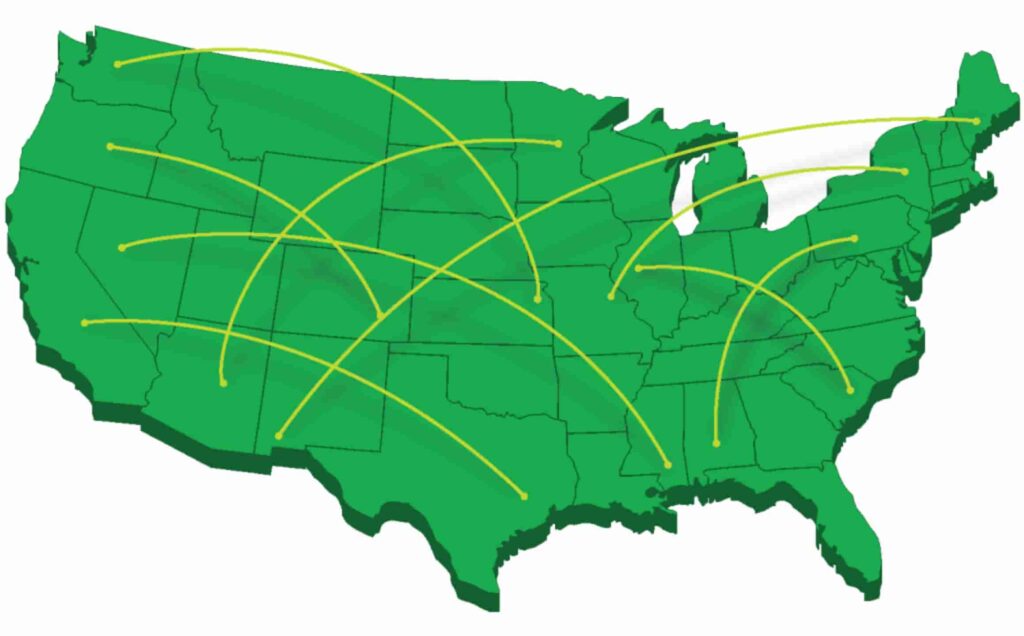Can You Travel Between States with Medical Marijuana?
In recent years, the legalization of medical marijuana has sparked a surge in interest and accessibility across various states in the U.S. However, the legal landscape surrounding its transportation across state lines remains a murky territory, often leaving medical marijuana patients wondering if they can travel with their prescribed medication. Let’s delve into this complex issue to uncover the nuances and legal considerations involved.
Understanding the Legal Framework:
The legality of medical marijuana varies significantly from state to state. 38 states have legalized medical marijuana, each with its own set of regulations and guidelines. While this has undoubtedly expanded access for patients within their respective states, the divergence in laws poses challenges for individuals who need to travel between states.
Interstate Travel and Federal Law:
One of the primary factors complicating interstate travel with medical marijuana is the conflict between state and federal law. Despite the growing acceptance at the state level, marijuana remains classified as a Schedule I controlled substance under federal law. This means that, technically, transporting marijuana across state lines is considered a federal offense, regardless of its legality within individual states.
The Rohrabacher-Farr Amendment:
However, there is a glimmer of hope for medical marijuana patients traveling between states. The Rohrabacher-Farr Amendment, initially passed in 2014 and subsequently renewed annually, prohibits the Justice Department from using federal funds to interfere with the implementation of state medical marijuana laws. While this amendment offers some protection to patients within their home states, its applicability to interstate travel is less clear-cut.
State-Specific Regulations:
To navigate the complexities of traveling with medical marijuana, it’s crucial to understand the specific regulations of both the departure and destination states. Some states have reciprocity agreements that recognize out-of-state medical marijuana cards, allowing visitors to possess and use cannabis within their borders. However, these agreements are not universal, and patients must verify the status of each state they plan to visit.
Transportation and Accessibility:
Transportation methods can still pose challenges even in states where reciprocity is recognized. Federal agencies such as the Transportation Security Administration (TSA) operate in airports and other transportation hubs, where they are bound by federal law. While TSA’s primary focus is on security threats rather than marijuana possession, travelers should be aware of the potential consequences if their medication is discovered during screenings.
Legal Risks and Consequences:
Despite the growing acceptance of medical marijuana, patients must recognize the legal risks associated with interstate travel. In the event of an encounter with law enforcement, individuals may face charges ranging from drug possession to trafficking, depending on the quantity of marijuana and the laws of the states involved. These legal consequences can have serious implications, including fines, imprisonment, and a criminal record.
Practical Considerations for Traveling Patients:
Given the legal complexities and potential risks, medical marijuana patients must exercise caution when traveling between states. Here are some practical considerations to keep in mind:
- Research State Laws: Before traveling, research the medical marijuana laws of both the departure and destination states to understand their regulations and any reciprocity agreements in place.
- Documentation: Carry proper documentation, including your medical marijuana card, prescription, and any relevant paperwork, to demonstrate the legality of your medication.
- Travel Discreetly: While it’s tempting to showcase your advocacy for medical marijuana, traveling discreetly can help avoid unwanted attention and potential complications.
- Secure Storage: Keep your medication securely stored in its original packaging to comply with state regulations and prevent any misunderstandings during transit.
- Plan Ahead: Plan your travel route carefully, avoiding states with stringent marijuana laws whenever possible, and consider alternative medication options if traveling to high-risk areas.
The Future of Interstate Travel with Medical Marijuana:
As attitudes toward marijuana continue to evolve, there is hope for greater clarity and flexibility in the legal framework surrounding interstate travel with medical marijuana. Efforts to reconcile state and federal laws and continued advocacy for patient rights may pave the way for a more cohesive and accommodating system in the future.
In conclusion, while the legalization of medical marijuana has undoubtedly improved access for patients within their home states, navigating interstate travel remains a complex and challenging endeavor. By understanding the legal landscape, exercising caution, and advocating for reform, medical marijuana patients can work toward a future where state boundaries do not limit access to medication. Until then, diligence and awareness are essential for those embarking on the journey of traveling with medical marijuana.

Dr. Nicholas Marsh has been a respected board-certified anesthesiologist in Northern Virginia for over 35 years. Recognized as a top doctor by FindaTopDoc.com, his vision for providing top-quality medical services is driven by his passion for patient comfort and dignity.

